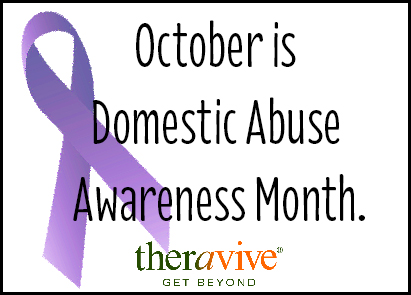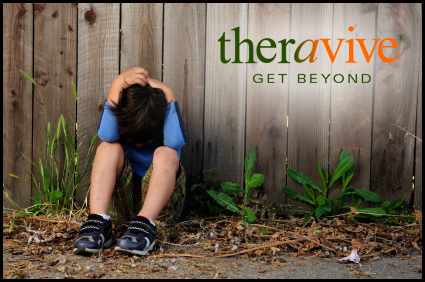 October is Domestic Abuse Awareness Month, and we wanted to make sure that we touched on this topic this month because it's an incredibly important one to understand and talk about. Millions of men, women, and children are affected by domestic abuse every single year, and it's important that we understand what it is and how it can affect people for the rest of their lives. So, in this article, we're going to define domestic abuse and explore how it can affect those involved for the long term.
October is Domestic Abuse Awareness Month, and we wanted to make sure that we touched on this topic this month because it's an incredibly important one to understand and talk about. Millions of men, women, and children are affected by domestic abuse every single year, and it's important that we understand what it is and how it can affect people for the rest of their lives. So, in this article, we're going to define domestic abuse and explore how it can affect those involved for the long term.
A Quick Look at Domestic Abuse
Of course, before we can talk about the long term effects of this terrible phenomenon, we need to take a look at what makes it such an issue and what actually happens in the process of domestic abuse. In short, domestic abuse is what happens within the home. It could be adult to adult, adult to child, or even child to adult. Either way, it involves abuse and makes it so that people do not feel safe in their home anymore.
Abuse Can Include Any Number of Things-
Don't think that it has to be physical to count as abuse. Obviously, physical abuse is the most noticeable, because there are bruises on the person's body or other physical injuries, like broken bones, sprains, or cuts. But there are other types of abuse that fall into this category too. Verbal/emotional abuse is in here, so if someone in the home is being put down all of the time, told that they are worthless, or any other number of things that involve attacking the person's character and self on a regular basis, that can be considered verbal or emotional abuse, and that also falls under this category. Manipulation in order to get people to "follow commands" can also fall under the category of mental or emotional abuse. Sexual abuse can also fall into here as well, which can include rape, molestation, coercing into unwanted sex, unwanted touch, the use of sexual intercourse as a "weapon" or prize, or harm to sexual organs can also fall under the domestic abuse umbrella.
The Long Term Effects of Domestic Abuse
There are always after effects and long term effects of abuse, no matter what context it may be in. Domestic abuse is especially harmful because it happens within the home, which is supposed to be a safe place for the people in question. If you don't feel as if you are safe, you're going to have a difficult time functioning normally. Because of that, a lot of things can occur to the person in question as a result of the constant abuse and hurt by those that they believe are supposed to love them. Here are some of the most common long term effects of domestic abuse that may occur and how they can affect everyone involved.
Mental health issues, including depression, anxiety, and PTSD.
Many times, people suffer from a lot of mental health problems as a result of domestic abuse. This is unfortunate, because it takes a lot to get past these sorts of issues. Sometimes, people may feel a lot of hopelessness and fear as a result of their domestic abuse, and the constant presence of those feelings can make it much harder for the person to stand up and move forward in their lives. You will need help to get past these mental health struggles, because the struggle will just get worse if you don't - and that's okay. Everyone needs help to walk through something as frightening and painful as domestic abuse.
Living life in fear and/or paranoia of the abuser's return.
This is perhaps, the most frightening part of the after effects of domestic violence. It's really hard to get past such a thing as it is, but what if you are afraid that the person will come and find you and harm you even more than they already have? This fear can become overwhelming, and some people end up moving far away and staying under the radar for a long time as a result of these fears and feelings. That being said, over time, the fear will start to subside. You will not always fear that the person will come and find you and your family and hurt you again - you will find peace, if you get the help that you need in order to live a healthy and whole life once again.
Inability to sleep at night.
Some people struggle with insomnia after domestic abuse, because of the above reasons, or just because they cannot sleep for one reason or another. Sleeping is difficult when you've got so much on your mind, and you may also struggle with nightmares or night terrors as well, which also makes it difficult to sleep. Your doctor or therapist can give you the resources that you need in order to help get your sleep back on track in a safe and healthy way so that you can continue toward healing.
 Easily stressed; emotional reactions to simple issues.
Easily stressed; emotional reactions to simple issues.
Some people who have been in domestic abuse situations are very jumpy and defensive. It's sad to see, really, because it's hard for them to deal with interactions that may have been a lot simpler without the history of abuse in their lives. That being said, it could be due to the above reasons, or it could just be the result of having to live with an abuser. You may feel the need to "defend yourself" from other people, even if they aren't scaring or threatening you in any way, or your emotional responses may be out of whack from what they used to be before everything started to happen. This is understandable, and people in your life will understand if you are going through these sorts of things and still are trying to deal with your emotions. Stay with positive people who will support you in your struggles instead of making you feel like you are inferior or make you feel bad that you "feel this way" or "are acting or behaving this way." You need to have stability and support more than ever if you are in recovery from a domestic abuse situation.
Inability to eat regularly, whether overeating or undereating.
Eating is always a sign of stress, if you overeat or under eat, there's usually some sort of emotional reason behind it. That being said, it's okay - you just have to work to get it under control. You can do that with the help of a mental health professional, by getting involved in an accountability group that focuses on weight loss, or by talking to a dietitian or nutritionist. They can help you get back on track for normal eating, and give you tips that will help you learn how to deal with your emotions in a way that is healthier and won't affect your physical health in such a negative manner. If you're concerned about your eating habits, talk to a professional.
Loss of job, friendships, relationships.
Abuse affects every area of our lives, including the relationships that we have and sometimes, even the career that we're working on. Sometimes, people in a domestic abuse situation have to move, and that's okay - starting all over is a healthy thing, and it will allow you to get back on your feet again. It may strain some of your relationships and friendships, because everyone has an opinion on everything and they will likely let you know theirs about what is going on and what "everyone" did wrongly in your situation. There will be a lot of situations in a person's life after getting out of a domestic abuse situation, and it will take time to work through them all, but it will be difficult and you will need help to readjust and get back on your feet again. And that's alright - there are lots of resources available for you to use in order to get back on your feet again and get your life back together into what you deserve it to be.
Seek Professional Help
If you are in an abusive relationship and need to get out, there are plenty of local and national resources out there that you can utilize in order to be able to do so. It's a difficult thing to do, but if you stand up and start your journey, you too can break free of the chains of domestic abuse on your life and the lives of your family members. You will need help to get past all of this - it's a long, hard road, but there are plenty of resources that will help you to heal and thrive after living in domestic abuse. Don't go through it alone. Here on our site, there are a number of resources that you can utilize, including support groups, counselors, and other resources in your local area. Get the help that you need now so that you can start living the whole, healthy life that you deserve to live and live in the freedom that you and your family need in this time. Check out our resources today for more information on where to go and how to get started.
_________________________________________________________________________________________________________________________________
Hidden Hurt. (2011). Surviving Domestic Abuse. Retrieved June 30, 2014, from http://www.hiddenhurt.co.uk/surviving_domestic_abuse.html
Joyful Heart Foundation. (2014). Effects of Domestic Violence. Retrieved June 30, 2014, from http://www.joyfulheartfoundation.org/learn/domestic-violence/effects-domestic-violence
Nauert, R. (2014). Children Often Witness Domestic Violence, with Side Effects. Psych Central. Retrieved on June 30, 2014, from http://psychcentral.com/news/2014/04/09/children-often-witness-domestic-violence-with-side-effects-2/68287.html
Rape and Sexual Abuse Centre (Cornwall). (2014). Effects of Domestic Abuse on Women. Retrieved June 30, 2014, from http://www.wrsac.org.uk/information/effects-of-domestic-abuse-on-women/
U.S. Department of Health and Human Services. (2011, May 11). Violence Against Women. Retrieved June 30, 2014, from http://womenshealth.gov/violence-against-women/mental-health-effects-of-violence/
About the Author
 Marti Wormuth, MA
Marti Wormuth, MAMarti has a Bachelor’s Degree in Sociology and a Master’s in Communication Studies. Her favorite activities include reading, playing games, and hanging out with the students at her church. Marti volunteers with the youth ministry at her church as a teacher and mentor. Because of this, she recently started another degree, her graduate certificate in student ministries. She considers her current graduate work to be a stepping stone to becoming a youth pastor or a published author.
Professional Website:
martis-miscellany.com/